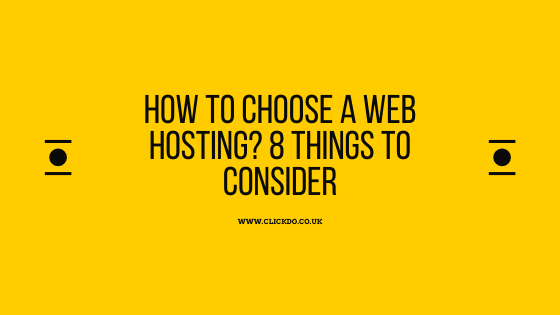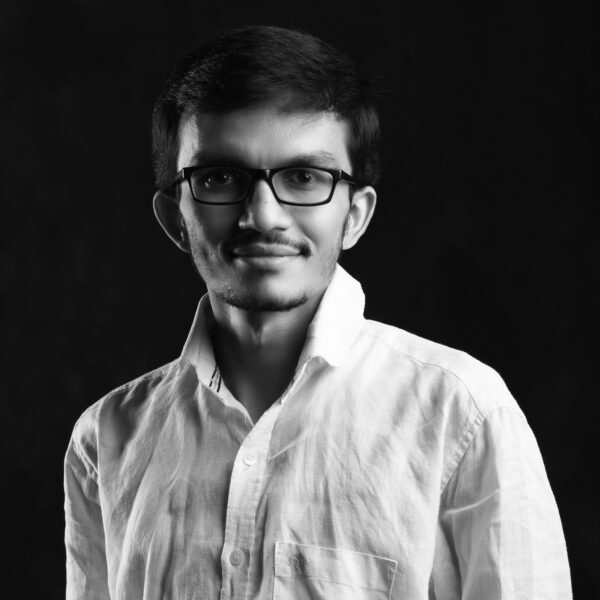How to Choose a Web Hosting? 8 Things to Consider


Choosing a good web hosting for your business comes with a lot of pitfalls. While the foolproof solution is to buy a medium-priced hosting from a respectable brand, it doesn’t always cover all your needs. Whether you’re want to host your own website, or need a good article to show your clients who refuse to get better hosting for the project, we’ve got your back.
Here 8 things you need to consider when choosing a hosting plan.
- Type of Hosting
- SSD, RAM, and CDN
- Software compatibility
- Security
- Static vs dynamic content
- .htaccess vs performance
- Customization
- Scalability
1. Type of hosting
Shared hostings are super cheap. You can get one for as little as $15 a year if you come across a discount. Some even offer a free website builder features on top of that. If you feel that is something that’s going to suit you, your small website probably will be okay with the foolproof solution.
If you don’t think you can get a decent hosting plan for your business for $15, here are two more downsides: limited storage space and no root access. The price of shared hosting comes at the expense of your control over it.
 You have no root access, which means your hands are tied. You’ll also suffer if your neighbor happens to be under a DDoS attack.
You have no root access, which means your hands are tied. You’ll also suffer if your neighbor happens to be under a DDoS attack.
If you need maximum security and control, get a dedicated server to run. It can be pretty costly if it’s managed, so it’s a great choice for people who know how to run servers properly.
For those who want to get the golden mean, there are VPS hosting plans. The virtual privacy you get is enough for most commercial and non-commercial websites. You have complete control over the server and can fine-tune MySQL and tailor the server to your needs.
2. SSD, RAM, and CDN
Once you’ve settled on the type of server, you need to know the hardware basics. If you can spare the money, go for an SSD instead of HDD storage space. It’s way faster, and the unlimited HDD storage many hostings offer pales in comparison to speed. Then, get a decent RAM, at least 2 GB when your website is only growing.
If you cater to a global audience, consider compromising a bit of ownership to get a VPS with a content delivery network. A CDN is a set of servers in different locations that make loading time the same all around the world, or in your areas of interest.
If you don’t want to overspend now, don’t worry, you can always improve bandwidth a bit with software. But getting the bare minimum in hardware is a must if you want your website to run fast.
3. Software compatibility
Compatibility can matter very little when you don’t use many web apps save for a couple of WordPress plugins. If you own a more advanced website, compatibility needs a closer look before you decide to buy a hosting plan.
You can run an unmanaged server the way you want, but if that’s not an option, you need to pay attention to the software it runs on. Apache is the most common choice for servers, but it will handle .NET apps way worse than Microsoft IIS. You’ll need to do quite a bit of modification to make it run ASP pages. The same goes for Nginx.
Some content management systems will not run if you don’t have proper database software. For instance, the cheapest plans often don’t include PostgreSQL that is necessary to run Drupal or OpenCMS.
Make sure your core software will run on your hosting before you make an investment.
4. Security
Even big companies make securities mistakes. Facebook leaked a database with over 400 phone numbers because it simply didn’t have a password on it. While you’re probably nowhere near Mark Zuckerberg’s negligence when it comes to making your users’ data secure, you still need to check your hosting for security features.
While you have to make sure you protect the database from SQL injection on your own, a decent hosting needs to have at least an auto backup tool. It’s even better if the server you own has DDoS mitigation software included in the yearly price.
When talking about WordPress privacy, there are several ways to do this. You can check this guide on how to make a single post private or close your site to the public altogether.
5. Static vs dynamic content
Does your website involve lots of dynamic content? If it does, you’d be better off choosing a hosting provider that runs on Apache because Nginx doesn’t handle it that well. It takes some work to make it run dynamic content well. On the positive side, Nginx has a slight edge over Apache when it comes to loading static content.
That’s not to say you should consider choosing an Apache server over the one run on Nginx if you have some dynamic content. However, if your website relies on thousands of dynamic requests, you just might do that.
6. .htaccess vs performance
Here’s another thing to consider when you’re choosing between hosting software. Apache gives you the ability to use .htaccess files. It overdrives the main configurations and can be used to let each directory have its own rules and make the whole website a bit more decentralized.
The drawback of that is decreased productivity. The server’s computing power is lost on looking for .htaccess files in each directory. Nginx doesn’t have that feature, so it runs a bit faster than a .htaccess-heavy Apache does.
7. Customization
As you only start your website, it’s probably not going to require much attention. However, once the number of visitors starts growing or you start building more complex solutions, your servers may need some customization.
While Microsoft IIS is best when it comes to handling .NET apps, it’s a closed software and it won’t take your fine-tuning as well as Apache or Nginx can. Both of them are open source, so customizing them won’t be a problem.
It gets even easier because there are dozens of third-party apps that can do anything from MP4 streaming to robot mitigation. There are more of them on Apache, but that’s quicky evening out as Nginx is gaining more and more popularity.
8. Scalability
The last tip is both for software and hardware. You have to find a hosting plan that can be easily scaled once you feel the need to. You need to have the ability to get more computing power for your buck. If you can’t get more RAM or more storage space quickly enough, you’ll have to expose your visitors to longer loading time.
These 8 tips will give you a deeper understanding of choosing a hosting. Do you think the list is incomplete? What do you look for in a great hosting?
Author Profile
- I'm an SEO Analyst and blogger outreach expert at ClickDo Ltd. & Expert at Building High Authority Local Citations, Also, I help Business Owners in the UK by flooding more Leads to their Business by ranking their website on top of Google for potential Keywords.
I'm an author and enjoys writing UK business blogs to help promote UK businesses online. You can also contact me for guest posting services as I manage over 100 top UK business websites.






